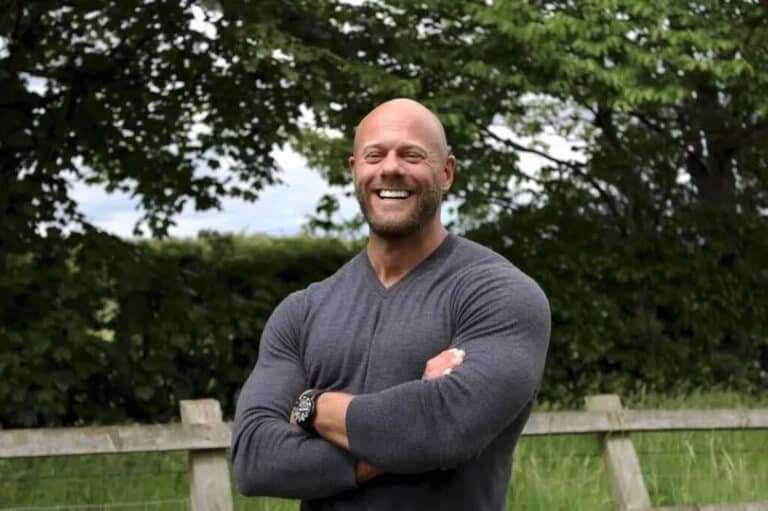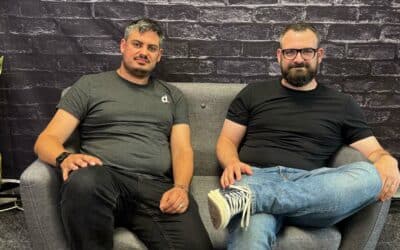Arbtech is the UK’s leading ecology consultancy, delivering ecology and biodiversity surveys to the UK’s development and real estate sectors.
Built from the ground up by entrepreneur Robert Oates, Arbtech has seen fast growth with an ambitious target to hit £100M turnover for the consultancy by 2029. The business became part of the Celnor Group, a buy-to-build compliance services business backed by the private equity investor Inflexion in 2024, which enabled Arbtech to invest into expanding its service lines and proprietary technology to continue to fuel further growth and unrivalled sector insight.
Arbtech’s mission critical, timely environmental services are unblocking challenges facing the UK housing market, including Biodiversity Net Gain (BNG) proposals resulting from newly mandated regulatory requirements.
Robert has two Masters degrees, is a Royal Chartered Biologist, as well as a member of the Royal Society of Biology and the Arboricultural Assocation.
What do you love about your job?
By far the best thing about my job is the people I work with, as well as seeing positive changes to the environment because of the work we do. I’m passionate about ecology and I am on a mission to transform environmental policy to speed up the planning process for developers to create better ecological outcomes.
Who or what has inspired you in your career?
Too many to list them all without risking omitting someone important.
What are the biggest challenges in your job?
The slow planning systems continue to be a big challenge to us. That’s why we’re working hard to create positive change by responding on Government papers in the hope of speeding up the ecological aspects of the planning process.
What skills have been the most crucial to your success in your career so far?
An entrepreneurial mindset, discipline, having tenacity and disrupting are key to building a successful business. It’s also crucial to put your team’s best interests at the heart of everything you do, too.
Fostering and rewarding contributions to our business and culture has enabled us to become a leader in our field, with competitive advantage not only for customers, but for staff too. We were named as one of the Sunday Times Best Places to Work in 2024, so we must be doing something right.
I was also honoured to be given The Disruptor Award at The LDC Top 50 of 2024 Awards which celebrates the UK’s most ambitious business leaders – so to be recognised as a disruptor in the sector was a proud moment.
What was your first salary and what could someone getting into the industry expect to earn nowadays?
During University I worked for a national grounds maintenance company on behalf of Salford and Liverpool councils, climbing trees for an amount of money that I won’t embarrass them by committing to writing. Despite what you read in the papers; the situation is starkly better
nowadays with expected earnings circa £40k+ with a range of perks alongside that.
What education or training would be most useful for someone looking to follow your career path?
That’s not a straightforward question to answer because most people would not want to take my career path. If you do however, I can highly recommend the following for years 1-5ish of your journey to being the CEO of a successful ecology business.
Begin a forestry degree, but decide 2 years in to leave to start a business aged 22. As I didn’t seek mentors or help, believing I could do it all myself, as a consequence I worked 80-hour weeks for five years straight before I saw any return and actually paid myself (after marketing, staff and running costs etc). To cover the rent I worked evenings delivering pizzas which taught me many lessons about how to treat people.
I learned everything empirically, which meant I failed miserably at almost everything for a long time before I started to triangulate on the best approach to getting things done. I also started two further businesses and invested my life savings into one of them. Timing is everything they say – unfortunately as I was seeing success, a global financial crisis put all my clients (and me) out of business. I also signed up to an MBA. So it wasn’t a typical journey, but being a risk taker it was the path I took and I learned a lot of lessons along the way, including what not to do before enjoying success.
What advice would you have for someone looking to follow your path?
Maybe don’t follow my exact path, but you could take a more balanced approach. For this, I would recommend discovering what you are good at, what pays well and what you like doing (ideally are obsessed with). Find the spot with the biggest area under all three of those curves and through necessary sacrifices run as hard and fast down that road as you can. Don’t look back and don’t listen to anyone that says “you can’t”. The leading indicator that you are getting it right is that onlookers’ gaze turns from pity to indifference to envy.













